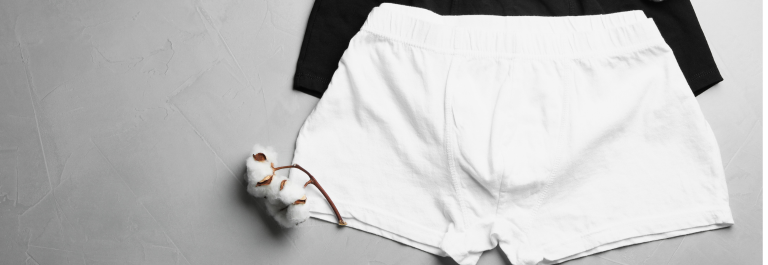Is scalp psoriasis getting you down? Are you sick and tired of the dry skin? Is the inflammation itchiness worse than ever, with no signs of quitting? Then you've come to the right place! While psoriatic disease can be uncomfortable, frustrating, and even painful, there are many options for treatment so that you don't have to suffer.
In this article, you can read all about:
-
What is scalp psoriasis?
-
Symptoms and causes of scalp psoriasis
-
Best ways to treat scalp psoriasis with moisturizer
Follow along to learn more about what you can do to manage psoriasis of the scalp.
What is Scalp Psoriasis?
Psoriasis is a skin condition that belongs to a group of disorders called autoimmune diseases. These disorders happen when the immune system becomes overactive and starts to attack itself. Psoriasis on the scalp looks like thick, discolored, dry, and scaly patches of skin called plaques.
Scalp psoriasis affects most people at one point during their disease, although it is usually not limited to the scalp. During psoriasis flare-ups, plaques appear on multiple parts of the body.
Psoriasis is a chronic disease that cannot be cured and will affect a person for their lifetime. It is not contagious and cannot be spread to another person. Luckily, there are many treatments that can help manage the disease.
Psoriasis Symptoms
How do you know you have psoriasis on the scalp? Look for the following psoriasis symptoms:
-
Thickened discolored patches on the skin: red or pink patches with white scales on light skin or purple with silver scales on dark skin
-
Dry, flaky skin on the scalp
-
Itching and irritation around the plaques
-
Skin irritation can lead to hair loss when there is too much scratching of the scalp
Symptoms can affect parts or the entire scalp. Plaques may also be found around the scalp in areas like the forehead, neck, or ears.
Psoriasis on the scalp can range from mild to severe. Mild cases can usually be treated with topical treatments, like creams or psoriasis shampoo. Severe scalp psoriasis cases can be prone to infection if scratching leads to the skin breaking. In this case, speaking to a board certified dermatologist may be helpful.
Causes of Scalp Psoriasis
Psoriasis is an autoimmune condition, meaning the immune system attacks itself. Psoriasis causes rapid growth of skin cells, which causes a build-up on the skin's surface. This is what creates the thick, scaly patches.
While the exact cause of psoriasis is unknown, genetic and environmental factors are believed to be involved with its onset. Some of these include:
-
Skin injuries
-
Harsh chemicals, detergents, and fragrances found in some skin products
-
Stress
-
Hormonal changes like pregnancy and puberty
-
Obesity
-
Overexposure to the sun
-
Bacterial infections
Prevent Scalp Psoriasis
While psoriasis cannot be cured, many steps can be taken to prevent scalp psoriasis from recurring or worsening. Try the following:
-
Maintain healthy skin on the scalp: clean your scalp 2 - 3 times a week with a non irritating shampoo to clear dead skin cells and keep itching at bay.
-
Use a moisturizer on the scalp: keeping moisture in the scalp with rich creams can keep the scalp in a healthy condition.
-
Use natural skin care: use a soap and moisturizer that is detergent and fragrance free to prevent dryness and itchiness.
Here are some other lifestyle tips that may help prevent scalp psoriasis:
-
Eat a balanced diet that contains anti-inflammatory foods like olive oil and leafy greens
-
Quit smoking and avoid alcohol
-
Limit stress by incorporating mindfulness and meditation into your daily life
-
Allow your scalp to breathe by avoiding hats and hair coverings
Psoriasis Treatments To Moisturize The Scalp
One of the best things you can do for plaque psoriasis is moisturize the scalp. Here are some tips for home use.
Moisturize With A Dermatologist Tested Cream
A soothing cream on psoriasis patches will soften the skin and relieve dryness and flaking. The Organic Manuka Honey Skin Soothing Cream is dermatologist tested and made especially for people with sensitive skin conditions like psoriasis. With just six natural ingredients, it is gentle on the skin and will not cause irritation. Use this cream on any affected areas several times a day for optimal results. It can be used on any body part and is safe for the whole family. For an extra boost of moisture, wear a shower cap for 10 minutes following the application so that it penetrates more deeply into the skin.
Use a Moisturizing Shampoo
Remove scales with a shampoo that softens the plaques, which will help your moisturizer work better. Use a natural cleanser like the Coconut and Sunflower Oil Bar, formulated to treat sensitive skin gently. The coconut oil contained in this soap is especially effective at soothing dry, itchy skin, as it penetrates skin and hair deeply and has anti-inflammatory and anti-fungal properties. Just make sure you don't shampoo too often, as it can strip your skin of its natural oils and make dry skin and itchiness worse.
Use Essential Oils
Some essential oils—such as tea tree and jojoba oil—are known for their anti-inflammatory properties. Try adding a few drops of one of the oils to the Organic Manuka Honey Skin Soothing Cream and massaging the cream directly to the affected areas of the scalp for a few minutes. Leave on for 1 - 3 hours, then wash the oils from the scalp with a gentle cleanser.
Do I Need To Seek Medical Treatment?
If you try our tips above and your psoriasis does not improve, you may need to seek treatment from a dermatologist. The treatment for scalp psoriasis is unique for every person and depends on the severity of your symptoms. Here are some things that dermatologists might suggest for persistent psoriasis on the scalp:
-
Medicated shampoos containing active ingredients like zinc pyrithione, salicylic acid, and coal tar
-
Topical treatment cream containing steroids
-
Oral medication that slows skin cell growth
If you experience signs of infection on the scalp, such as worsening redness, bleeding, swelling, or pain, seek treatment from your medical provider.
Find Relief With Moisturizing Psoriasis Treatments
Although itching and flaking skin on the scalp can be a real drag, there are many options for treating psoriasis plaques. Follow our tips to find the relief you've been seeking today!










